The Program at a Glance is available here

We are excited to announce our second meeting of the “Canadian Veterinary Cardiology Network (CVCN)”. This year we will explore potential causes of collapse, in particular rhythm abnormalities and information gained from emergency imaging. Our presenters will be board-certified veterinary cardiologists Dr. Andrew Chong, Dr. Michelle Colpitts, Dr. Shari Raheb, and Dr. Lynne O’Sullivan. We are looking forward to spending an interesting afternoon with you.
This event is generously supported by Boehringer Ingelheim, making it free of charge.
For registration and further details, click here: Canadian Veterinary Cardiology Network (CVCN Meeting Registration
CVCN Meeting Schedule (each session includes 10 min for questions)
2:00-2:10: Welcome
2:10-2:40: Tachyarrhythmia - Dr Chong
2:40-3:10: Bradyarrhythmia - Dr O’Sullivan
3:10-3:40: ECG approach and examples – Dr Colpitts
3:40-4:00: Coffee Break
4:00-4:30: Emergency imaging, how can it help - Dr Raheb
4:30-5:00: Neurology approach to collapse – Neurologist TBC
The CVCN Meeting will be held in Dockside III.
OVC Alumni and OVC Pet Trust-supporting clinics are invited to join the OVCAA and OVC Pet Trust for an evening of fun! Bring your colleagues and meet friends – old and new – for refreshments, door prizes and giveaways before the conference starts. We look forward to seeing you! For more information, please contact ovcadv@uoguelph.ca.
The OVC Reception is hosted by the OVC Alumni Association & OVC Pet Trust.
The Reception is being held in the Regatta room.
The OVC Reception at OVMA is generously sponsored by:
How to Tune Your Practice: Strategies Every Owner Should Know
Join VetCPA for a power-packed breakfast and panel discussion designed exclusively for veterinary practice owners. This early-morning session brings together leading industry experts to share practical, high-impact strategies to help you fine-tune your operations, strengthen financial performance, and build long-term practice value.
Enjoy a full breakfast while moderator Kevin Commins (VetCPA) guides an engaging discussion with our expert panel: Amy Ma (VetCircle), Mike Parent (CoVet), Teressa Jonescu (Veterinary Purchasing), and Greg Toner (VetCPA). Together, they’ll unpack real-world insights and actionable ideas you can take back to your clinic.
Whether you’re focused on improving efficiency, optimizing profitability, or planning for growth, this session will leave you with clear steps to elevate your practice in 2026 and beyond.
Pre-registration is required for this event.
The Sunrise Symposium is located in Harbour A/B.
The sunrise symposium is sponsored by:

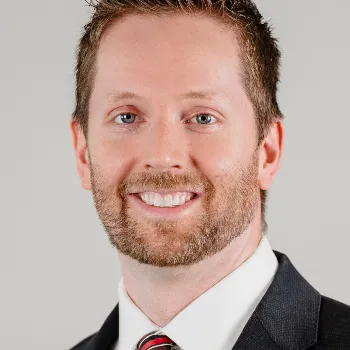

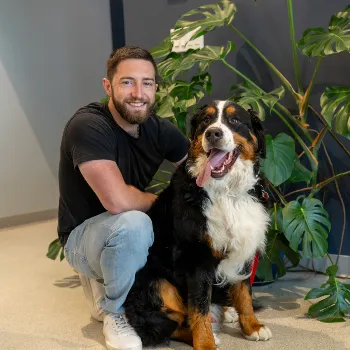

Morning Yoga will be held in the Regatta room.
Stacey Melick is an RVT with over 20 years of experience in small animal, exotic, and emergency medicine. After struggling with fatigue and poor sleep during long shifts, she turned to yoga and credits it for supporting both her career longevity and her overall health. For the past six years, Stacey has focused on relaxation and mindfulness practices to help others at risk of chronic fatigue and burnout.
During COVID, she began offering calming, accessible online classes specifically for veterinary staff. Her low-to-the-ground postures target overused areas of the body to reduce strain and prevent injury. With additional training in meditation, she has also hosted sold-out workshops on “Yoga for Chronic Fatigue and Burnout.”
If you’d like to try yoga with Stacey before the conference, check out her YouTube channel: www.youtube.com/@yoga_with_stacey
Pre-registration for yoga is required.
The breakfast buffet is located in the Frontenac Foyer, with seating in the Frontenac Ballroom.
Keynote Plenary Session and Breakfast
The AI revolution is here, transforming art, business, finance, science, and social media — and soon, even how we interact with one another. It may feel overwhelming, but evolution has followed predictable patterns before.
From animals to humans, intelligence has always emerged through neural networks, bringing common themes: competition, adaptation, social structures, and eventual balance with the environment. AI will follow similar paths. It won’t simply take jobs — but those who use it well will. By recognizing these patterns, you can shape your strategy to harness AI’s power and stay ahead.
The keynote is located in the Frontenac Ballroom.
The keynote is sponsored by

All Dentistry lectures are located in the Frontenac Ballroom.
Setup for Success: How to Get Through Your Procedures with More Ease
This lecture will focus on a start to finish approach to everything except the actual procedure. The magic of a great dental procedure begins before the first contact and ends after the pet is completely recovered, and includes planning, equipment setup, patient positioning, instrumentation, and communication.
The Dentistry lectures are sponsored by:

All Cardiology lectures are located in Harbour A/B.
The Collapsing Patient: Tips for Approach and Management
Differentiating syncope from seizure and other types of non-cardiac events can be challenging, particularly when unwitnessed. Practice tips on gathering the right information, identifying red flags, and thinking through causes and management strategies will be shared to boost confidence in dealing with this challenging presenting complaint.
The Cardiology lectures are sponsored by:
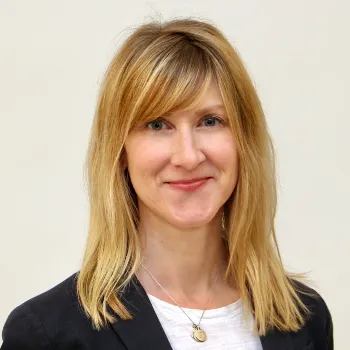
All Nutrition lectures are located in Harbour C.
Deciphering Pet Food Labels
This lecture will discuss the key components of a pet food label, current pet food regulations in Canada, and proposed upcoming changes in label design. It will also explore how to objectively assess pet foods and clarify what information can and cannot be found on commercial diet labels.
The Nutrition lectures are sponsored by:
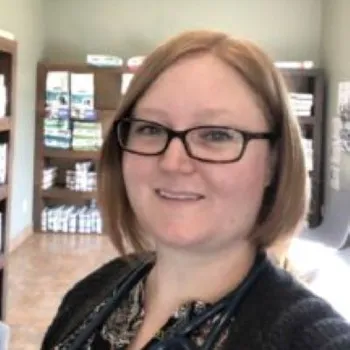
All Focus on Infection lectures are located in Pier 2/3.
Companion Animal Disease Surveillance in Ontario
Gain insights on what companion animal infectious disease data is (and is not) compiled annually for Ontario, as well as easy ways you can help contribute to surveillance efforts for the benefit of patients and people alike (hint: you don’t need an epi degree!).

All Practice Management lectures are located in Pier 4/5.
Navigating the Realities of Animal Care Work
Animal care work exposes professionals to chronic stress and trauma. This session explores how these conditions affect wellbeing, team dynamics, and organizational culture. Participants will better understand the cumulative impact of high-stress environments and begin identifying opportunities for change at individual, team, and organizational levels.
The Veterinary Well-Being lectures are sponsored by:

The trade show is located in the Metropolitan Ballroom.
The tabletop displays are located in the Harbour Ballroom Foyer.
The coffee break is located at the back of the trade show in the Metropolitan Ballroom.
The coffee break is sponsored by:
All Dentistry lectures are located in the Frontenac Ballroom.
Defining the Dentistry Culture in Your Practice
Every practice is different. Without intentionally defining who you want to be, you risk the mistake of trying to be everything for everyone. This talk will help you identify your values and translate that into building a clear dentistry culture that is right for your practice and client base.
The Dentistry lectures are sponsored by:

All Cardiology lectures are located in Harbour A/B.
Congestive Heart Failure: Myths and Truths
Preconceived ideas about the presentation, treatment, and prognosis for congestive heart failure can sometimes lead to tunnel vision when managing patients with heart disease and respiratory signs. Common myths and their corresponding truths will be discussed to optimize patient diagnosis and management.
The Cardiology lectures are sponsored by:

All Nutrition lectures are located in Harbour C.
Alternate Diet Trends
This lecture will review the different types of alternative diets including plant based, grain free, and with a heavy focus on raw food diets. It will include an in-depth review at the risks associated with raw feeding and will include communication tips for veterinary teams to use when having conversations with pet owners about raw feeding.
The Nutrition lectures are sponsored by:

All Focus on Infection lectures are located in Pier 2/3.
Antimicrobial Treatment Guidelines Update
This presentation will provide updates on new and in-progress antimicrobial treatment guidelines for urinary, dental and gastrointestinal disease, with a focus on use of antimicrobials for common diseases in dogs and cats.

All Practice Management lectures are located in Pier 4/5.
Strategies for Resilience & Connection in Animal Care Work
As a response to the impacts of high-stress, trauma-exposed work, this session introduces a trifocal framework for professional wellbeing: organizational, team, and individual health. Participants will explore practical starting points in each area, with resources for deeper learning to foster connection and strengthen professional wellbeing.
The Veterinary Well-Being lectures are sponsored by:

The lunch buffet is located in the Frontenac Foyer, with seating in the Frontenac Ballroom.
The lunch break is sponsored by:
Beyond Lyme: The Emerging Diagnostic Challenge of Anaplasmosis
With Anaplasma spp. infections on the rise, it’s no longer just about Lyme disease anymore. This session breaks down what your diagnostic results really mean, how to distinguish Anaplasma from other tick-borne infections, and how to use existing tools to guide confident clinical decisions.
Pre-registration is required for this event.
The Lunch Symposium is located in the Marine room.
The lunch symposium is sponsored by:
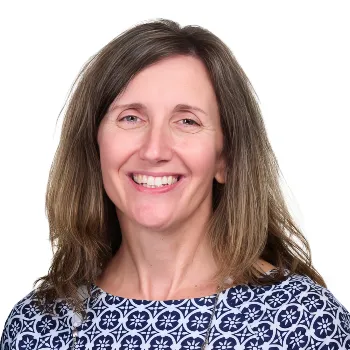

You must be present to win the draw.
The draw is located at the OVMA booth in the trade show, the Metropolitian Ballroom.
All Dentistry lectures are located in the Frontenac Ballroom.
Look Smarter, Not Harder – Diagnostics in Veterinary Dentistry
This session will go through the major dental diagnostic approaches. We’ll include how to perform a great awake oral exam, what you should look for on a sedated oral exam, and an anesthetized exam. We’ll also discuss dental radiology and showcase some key lesions you don’t want to miss.
The Dentistry lectures are sponsored by:

All Cardiology lectures are located in Harbour A/B.
Diagnostic Imaging in the Cardiac Patient
The strengths and potential pitfalls of various imaging modalities including thoracic radiography, point-of-care ultrasound, and echocardiography, will be reviewed and discussed. Interpretation
tips to maximize case decision-making will be shared.
The Cardiology lectures are sponsored by:

All Nutrition lectures are located in Harbour C.
Homemade Diets – The Art of Assessment & Formulation
This lecture will review the benefits and risks of homemade diets and will include tips on how vet teams in general practice can quickly assess homemade diets. The lecture will also include information on how veterinary nutritionists can do a more in-depth assessment and will provide insight on the nutritionist's approach to homemade diet formulation. Drs Manacki and Grant will each share cases for which a homemade diet approach has been successful for patients with various medical conditions.
The Nutrition lectures are sponsored by:


All Focus on Infection lectures are located in Pier 2/3.
Vaccination Approaches for Non-textbook Scenarios
Patients and owners can complicate vaccine approaches. Missed doses, delays, vaccine hesitancy and adverse reactions, among other factors may result in need to deviate from typical vaccination approaches. While the goal is to follow label and guideline approaches, this talk will provide an overview of what we can do when that's not possible.

All Practice Management lectures are located in Pier 4/5.
Navigating Secondary Traumatic Stress in Veterinary Practice
Veterinary professionals face dual exposure to trauma through both animals and their caregivers. This session provides an overview of secondary traumatic stress (STS), its causes, and impacts. Participants will learn the importance of debriefing, nervous system health, and organizational supports as evidence-informed strategies to mitigate STS in practice.
The Veterinary Well-Being lectures are sponsored by:

All Dentistry lectures are located in the Frontenac Ballroom.
Little Teeth, Big Problems – Pediatric Dentistry and Dental Issues in the First Year
We’ll explore dental needs in the first year of life in this talk. From malocclusions to broken puppy teeth, unerupted teeth and the mysterious juvenile gingivitis/periodontitis in cats, we’ll discuss the conundrums you might encounter from puppy and kittenhood through the first birthday.
The Dentistry lectures are sponsored by:

All Cardiology lectures are located in Harbour A/B.
Feline Heart Disease: Latest Updates
This session is aimed at keeping clinicians current on the latest practice guidelines for diagnosis and management of feline heart disease and on novel medical therapies currently being
investigated for hypertrophic cardiomyopathy.
The Cardiology lectures are sponsored by:

All Nutrition lectures are located in Harbour C.
Stubborn Fat
Obesity is a growing concern. With the majority of our patients overweight or obese, it is the leading cause of malnutrition. Despite having more dietary options at our fingertips than ever
before, not all patients are successful on their weight loss journey. This session will help with tips, tricks and guidance for these challenging cases, both within and beyond the bowl.
The Nutrition lectures are sponsored by:
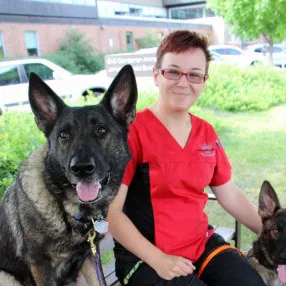
All Focus on Infection lectures are located in Pier 2/3.
Vector-Borne Diseases in Dogs: Practical Diagnostics for a Complex Problem
Vector-borne diseases in dogs can be challenging to recognize, with vague or overlapping clinical signs and imperfect diagnostic tools. This case-based session will outline when to consider these infections, how to select and interpret diagnostic tests, and the strengths and limitations of options such as serology, PCR, and microscopy. Using real patient examples, including immune-mediated disease cases with underlying infections, we'll explore common pitfalls, highlight decision points, and provide practical strategies for improving recognition and management of vector-borne diseases.
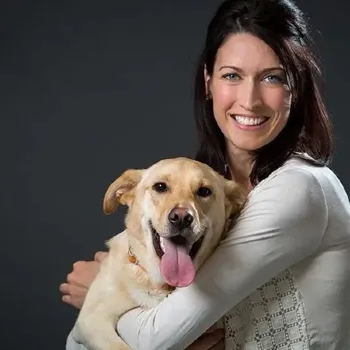
All Practice Management lectures are located in Pier 4/5.
Effective Stress & Trauma Debriefing in Veterinary Teams
This session introduces different approaches to debriefing and why they support recovery in high-stress veterinary settings. While several models will be outlined, the focus will be on practical, accessible strategies that can be integrated into everyday peer communication to strengthen connection and support.
The Veterinary Well-Being lectures are sponsored by:

The coffee break is located at the back of the trade show in the Metropolitan Ballroom.
The coffee break is sponsored by:
All Dentistry lectures are located in Frontenac Ballroom.
Following a Stepwise Approach to Dental Extractions
Similar to any surgery, large extractions are much easier when approached in a stepwise manner. In this session we’ll go through (with video) the step-by-step approach to extraction of the maxillary canine and maxillary fourth premolar with video. Don’t pick up a dental elevator before you’re ready for it!
The Dentistry lectures are sponsored by:

All Cardiology lectures are located in Harbour A/B.
Canine Degenerative Mitral Valve Disease: Latest Updates
This session is aimed at keeping clinicians current on the latest practice guidelines for diagnosis and management of canine degenerative mitral valve disease and on novel interventional
treatments that are gradually becoming more widely available.
The Cardiology lectures are sponsored by:

All Nutrition lectures are located in Harbour C.
Round Table: Team Based Nutrition & Communication
This round table will feature Drs. Grant and Manacki, as well as Shoshana Verton-Shaw, and will include discussion on topics including utilizing your team in general practice to make nutrition recommendations more effective and when to seek referral for more complex cases. The round table will focus on using a team approach to discussing nutrition and making diet recommendations to owners. The speakers will have some content prepared but will also take questions from the audience on nutrition related topics.
The Nutrition lectures are sponsored by:



All Focus on Infection lectures are located in Pier 2/3.
Fungal Infections in Cats and Dogs: Recognition, Diagnosis, and Management Challenges
Although relatively uncommon, fungal infections in cats and dogs can be difficult to recognize, diagnose, and manage. This session will cover when to suspect fungal disease, appropriate diagnostic tests, and how to interpret results. We will also explore prognostic factors, treatment strategies, and real-world challenges such as monitoring response and determining treatment duration. Case examples will highlight key decision points and practical approaches for improving outcomes.

All Practice Management lectures are located in Pier 4/5.
Practical Strategies for Energy Management in Veterinary Medicine
Energy depletion is a common challenge in veterinary medicine. This session introduces micro-practices to replenish mental, emotional, and physical energy throughout the workday. Participants will reframe self-care from something “after work” into small, accessible resets, supporting nervous system health and sustaining energy in demanding veterinary environments.
The Veterinary Well-Being lectures are sponsored by:

The cocktail reception is located in the Metropolitan Ballroom.
The cocktail reception is sponsored by:
Morning Yoga will be held in the Regatta room.
Stacey Melick is an RVT with over 20 years of experience in small animal, exotic, and emergency medicine. After struggling with fatigue and poor sleep during long shifts, she turned to yoga and credits it for supporting both her career longevity and her overall health. For the past six years, Stacey has focused on relaxation and mindfulness practices to help others at risk of chronic fatigue and burnout.
During COVID, she began offering calming, accessible online classes specifically for veterinary staff. Her low-to-the-ground postures target overused areas of the body to reduce strain and prevent injury. With additional training in meditation, she has also hosted sold-out workshops on “Yoga for Chronic Fatigue and Burnout.”
If you’d like to try yoga with Stacey before the conference, check out her YouTube channel: www.youtube.com/@yoga_with_stacey
Pre-registration for yoga is required.
Breakfast will be provided in the meeting room.
The OVMA AGM will be held in the Marine room.
The breakfast buffet is located in the Frontenac Foyer, with seating in the Frontenac Ballroom.
Keynote Plenary Session and Breakfast
It's back! Join us once again for this interactive session that will provide a light but informative overview of a selection of the good, the bad, and what we did and didn't see coming in the veterinary world over the last year, with a focus on infectious diseases.
The keynote is located in the Frontenac Ballroom.
The Keynote is sponsored by:


All Anesthesia & Pain Management lectures are located in Harbour A/B.
Anesthesia for Commonly Presented Dental Patients
Patients with comorbid conditions are increasingly being presented for routine and advanced dental care. This lecture will include case-based discussions on the "practical" management of patients (dogs and cats) who present with evidence of heart disease (heart murmurs) and more.
The Anesthesia & Pain Management lectures are sponsored by:
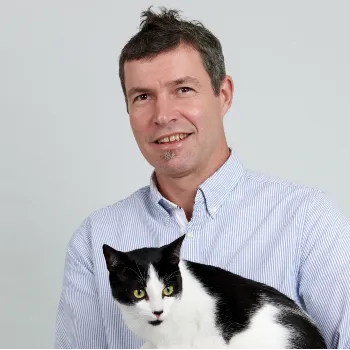
All Behaviour lectures are located in the Frontenac Ballroom.
How do Behavioural Medications Work?
This lecture will comprise a tour through the commonly used classes of medications, with specific examples from each group, in a manner that will allow attendees how to couple mechanism of action with potentially desired outcome. Focus will be on neurochemical and neuromolecular effects, potential adverse effects, assessing anxiolysis vs. sedation, and combining medication.
The Behaviour lectures are sponsored by:
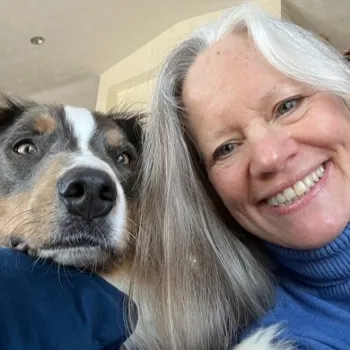
All Practice Pearl lectures are located in Harbour C.
A Dental Review for People in a Hurry
This session will cover the diagnosis and treatment for all of the most commonly encountered pathology in the dog and cat. Buckle up for 50 minutes of tooth fractures, perio, TR, FCGS, mucosal disease and more.
The Practice Pearls are sponsored by:

All Equine lectures are located in Pier 7/8.
Diagnostic Tools for Equine Colic
This hour will review performing, interpreting and utilizing diagnostic tools for horses with colic - including nasogastric intubation, point of care blood work, transrectal palpation and abdominocentesis and peritoneal fluid analysis.

All Practice Management lectures are located in Pier 4/5.
Leveraging Data to Strengthen Economic Resilience in Veterinary Medicine
Through every economic cycle, there comes opportunities to learn, grow, and build resilience. By examining historical macroeconomic and veterinary industry data from Canada and the United States, this session will explore how veterinarians and practices navigated varying economic conditions– adapting to changing conditions, and emerging stronger.
Drawing on key industry and macroeconomic indicators, and assessing strategies that veterinarians implemented in response, you’ll gain insight to better identify shifting economic currents and what steps you can take today and, in the future, to ensure continued resilience – regardless of how the economic cycle turns.
Learning Objectives:
1. Recognize and interpret leading indicators of economic cycles using key macroeconomic and practice-level financial metrics.
2. Evaluate the strategies implemented during historical economic events and how the veterinary industry evolved in response.
3. Develop key strategies to accomplish long-term goals through any economic condition.
The Management & Finance lectures are sponsored by:
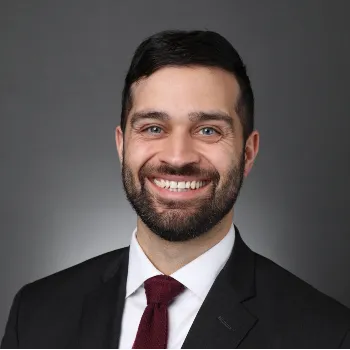
All Technician lectures are located in Pier 2/3.
Basic ECG Interpretation
Utilizing videos, photos, and real patient ECG strips, this lecture will describe and explain the most common ECG abnormalities encountered in emergency and critical care. Starting with a quick review of a normal ECG complex, attendees will work through rate, rhythm, and waves for a variety of arrhythmias. Once identified, common clinical signs and emergency treatment for each arrhythmia will be discussed. An emphasis will be placed on quick recognition of true emergencies and preparation of treatment.
The Acute Care lectures are sponsored by:
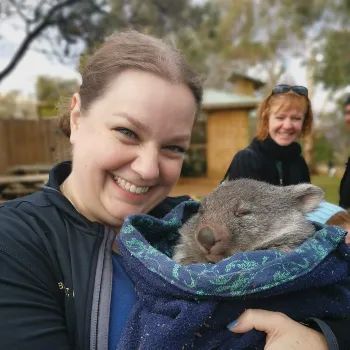
The trade show is located in the Metropolitan Ballroom.
The tabletop displays are located in the Harbour Ballroom Foyer.
The Coffee Break is located at the back of the trade show in the Metropolitan Ballroom.
The Coffee Break is sponsored by:
All Anesthesia & Pain Management lectures are located in Harbour A/B.
Continuous Intravenous Infusions…the Good and the Bad
Continuous intravenous infusions are increasingly popular and may play an important role in peri anesthetic care. However, there are several practical considerations in terms of equipment and safe use. Also, the quality and strength of currently available clinical evidence should be considered. Several commonly used drugs for continuous intravenous infusions will be discussed.
The Anesthesia & Pain Management lectures are sponsored by:

All Behaviour lectures are located in the Frontenac Ballroom.
Reading Dog Behaviour: Emotional States
What is fear, what is anxiety, what is panic in our canine and feline patients? Understanding the underlying emotional states - in terms of neurochemistry driving them and behavioural outcomes - can be essential to assessing and helping any behavioural medicine patient. Helping clients to recognize behaviour patterns that flag different underlying states can help our patients.
The Behaviour lectures are sponsored by:

All Practice Pearls lectures are located in Harbour C.
Signs of a Young Dog’s Compensation for Joint Discomfort…Can We Spot it Earlier?
Joint discomfort in young dogs can significantly impact their long-term health and well-being. Early detection, intervention and prevention are still a major challenge in OA disease discussions. This lecture will explore the subtle signs of compensation that young dogs exhibit when experiencing joint discomfort, often before overt clinical symptoms manifest. We will discuss behavioral changes, postural adaptations, and gait abnormalities that may indicate underlying joint issues. The aim is to equip veterinary professionals with the knowledge and tools to identify these early indicators, facilitating prompt diagnosis, appropriate management, and improved outcomes for our younger patients. By understanding how to spot these often-missed signs, we can strive towards earlier interventions and a better quality of life.
The Practice Pearls are sponsored by:
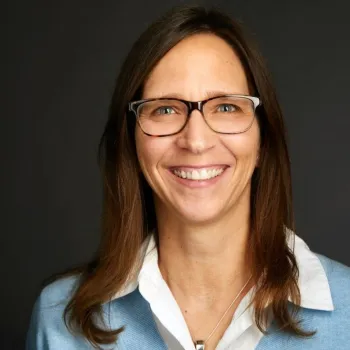
All Equine lectures are located in Pier 7/8.
Thoracic and Abdominal Ultrasound in the Horse
This hour will review thoracic and abdominal ultrasound in the horse, with special reference to colic patients and other look-a-like emergencies. We will review technique tips, as well as both normal and abnormal findings.

All Practice Management lectures are located in Pier 4/5.
Structuring Associate Veterinarian Compensation and Benefits
Veterinarian compensation and benefits play a key role in recruitment, retention, and practice productivity. This session will examine the most common approaches to compensating veterinarians used in both Canada and the United States—including salary, production-based methods, and hybrid structures, as well as the typical benefits on offer.
Drawing on survey data and insights, this session will explore the incentives, trade-offs, and considerations behind various approaches, from the perspective of employer and employee, as well as how trends in compensation and benefits are shifting in recent years.
Learning Objectives:
1. Identify and compare common compensation methods used in Canada and the United States.
2. Assess the impact of compensation and benefits structure on employee engagement, productivity, and retention.
3. Develop win-win strategies for employees and employers in the hiring process.
The Management & Finance lectures are sponsored by:

All Technician Essentials lectures are located in Pier 2/3.
From the Trenches: ECC Cases
Join your fellow attendees and work through emergency cases from admitting vitals through initial diagnostics and fluid therapy plans. Throughout the talk, the audience is encouraged to answer “what would you do and why” questions as we discuss emergency disease processes such as shock, trauma, endocrine disorders, and toxins. An emphasis is placed on providing high quality nursing care, critical thinking skills, patient monitoring, pain management, and the importance of the veterinary nurse in treatment of dynamic patients.
The Acute Care lectures are sponsored by:

The lunch buffet is located in the Frontenac Foyer, with seating in the Frontenac Ballroom.
The Lunch Buffet is sponsored by:
From Curious to Confident: Two Years of Velagliflozin in Feline Diabetes Care
This lecture explores modern strategies for managing feline diabetes mellitus, focusing on the use of insulin and the newly approved SGLT2 inhibitor, velagliflozin (Senvelgo®). Attendees will learn when insulin is the best choice, which cats are good candidates for Senvelgo, and practical advice from Dr. Little's years of experience with SGLT2 inhibitors using case examples.
Pre-registration is required for this event.
The Lunch Symposium is located in the Regatta room.
The Lunch Symposium is sponsored by:

The 'Lunch With' Sessions are held in the Marine room.
*Lunch service provided in session room.
Pre-registration is required.
Speakers and topics for the 'Lunch With' sessions are as follows:
Sara Ritzie, BScH, DVM
Finding Fulfillment and Fostering Resilience through Compassion, Communication, and Spectrum of Care
Explore practical strategies and emerging research linking communication, spectrum of care, and veterinary mental health. Learn tools to navigate cost-of-care conversations and reduce moral distress while expanding access to care for pets and their families.
Alex Chan
Acute Canine Intervertebral Disc Extrusion (IVDE) Management
Canine IVDE is a common neurological presentation. Prompt evaluation and appropriate treatment are crucial for a successful outcome. As a group, we will explore how to triage these patients for referral versus conservative management, along with the spectrum of care available to them.
Katie Powell, RVT - CANCELLED
Embedding a Veterinary Social Worker: Supporting Clients and Staff
Explore how integrating a veterinary social worker boosts client communication, staff wellbeing, and clinic sustainability. Discuss implementation strategies, return on investment, and how to embed this role seamlessly into existing veterinary teams.
Nicola Cribb, MA, VetMB, DVSc Dip. ACVS
Use of Differing Frameworks for Approaching Ethical Conflicts and Moral Stress
Ethical conflicts trigger moral stress. Although we all experience ethical tensions daily we rarely discuss them, and only 30% of AVMA accredited schools deliver formal ethics training. Several medical ethical frameworks exist to facilitate reasoned approaches to situations of conflict.
Amy Lack & Janet Beeler-Marfisi
Wildfire Smoke and Smog - New Threats and Therapies for Equine Lungs
Join OVC's Drs Amy Lack and Janet Beeler-Marfisi for a discussion on the latest in equine asthma and EIPH, with insights on wildfire smoke, smog exposure, and evolving treatment options for equine practitioners.
The OVC Lunch Withs are sponsored by:
AAHA Forum & Luncheon
Join American Animal Hospital Association (AAHA) Interim CEO, Dr. Guylaine Charette, and President, Dr. Parva Bezrutczyk, for an overview of the recently unveiled refresh of the AAHA Standards of Accreditation. This milestone update reflects the latest advances in veterinary medicine and practice management, designed to simplify your journey toward excellence while elevating the future of accredited care. Dr. Charette and Dr. Bezrutczyk will share insights into the standards development process and highlight how these updates will directly benefit your practice, your team, and the clients you serve. This event is open to registered conference attendees only.
The AAHA Luncheon will be held in Dockside II.
This forum is being provided by AAHA.
You must be present to win the draw.
The draw is located at the OVMA booth in the trade show, the Metropolitan Ballroom.
All Anesthesia & Pain Management lectures are located in Harbour A/B.
5 Things to Consider Adding to Your Anesthesia Toolbox
It's useful to periodically re-evaluate your anesthetic "toolbox" to ensure there aren't "tools" you aren't missing. This lecture will discuss five more recent additions to my anesthetic "toolbox". Including equipment safety monitors, new formulations of (dex)medetomidine, sevoflurane, ventilators and low-flow anesthetic delivery.
The Anesthesia & Pain Management lectures are sponsored by:

All Behaviour lectures are located in the Frontenac Ballroom.
New Approaches to Minimizing Stress & Distress When Handling Dogs & Cats Veterinary Visits
There are now excellent quantitative data on factors that affect distress and non-compliance of veterinary patients during exams. This lecture will focus on evidence-based approaches that seek to meet veterinary patients’ needs in a manner that has as it’s focus truly collaborative care designed to minimize distress for everyone.
The Behaviour lectures are sponsored by:

All Practice Pearls lectures are located in Harbour C.
Medical & Surgical Management of Canine Hip Dysplasia
The presentation will cover the medical and surgical options for hip dysplasia based on age of patient, clinical signs and patient size. It will review medical management, all surgical options based on age, body weight and severity, outcomes, short- and long-term complications.
The Practice Pearls are sponsored by:
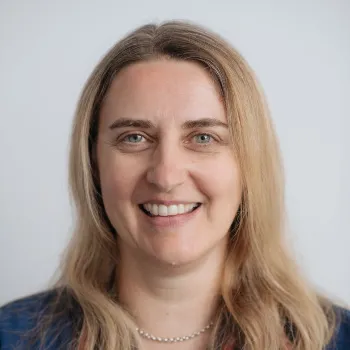
All Equine lectures are located in Pier 7/8.
Equine Fluid Therapy: A Case-Based Discussion
Intravenous (IV) fluids are great, but other options exist including enteral and rectal fluids. Here, we will review indications for each modality (IV, enteral, rectal), discuss pros, cons and practical considerations for each in the field.

All Practice Management lectures are located in Pier 4/5.
Veterinary Practice Valuation in the Post-COVID Economy
Business valuations in veterinary medicine, and many other industries, surged during the COVID-19 pandemic, driven by high demand for services, low interest rates, and increased acquisition activity. However, as the pandemic and the surrounding economic conditions have abated, today’s reality paints a different picture.
This session will examine veterinary practice valuations, including how value is determined and how to approach the valuation process, as well as the factors that may influence valuation trajectory in the future.
Learning Objectives:
1. Understand key factors that influence veterinary practice valuation in today’s economy and market.
2. Compare veterinary practice valuation trends before, during, and after the COVID-19 pandemic.
3. Identify when and how to seek a practice valuation and the data and information that is critical for accuracy.
The Management & Finance lectures are sponsored by:

All Technician Essentials lectures are located in Pier 2/3.
Understanding Fluid Therapy
Not all IV fluids are created equal, and not every type of fluids is appropriate for every patient. This lecture will explain not only the make-up of fluids, but when to use each type, where fluids go once they enter the body, how to calculate IV fluids and drug additives, and monitoring patients on fluid therapy. The lecture will conclude with case studies and audience participation to determine patient fluid needs.
The Acute Care lectures are sponsored by:

All Anesthesia & Pain Management lectures are located in Harbour A/B.
Tips for Managing Common “challenges” During Anesthesia
Complications or "challenges" are common during anesthesia. Quickly recognizing complications and taking a measured and systematic approach to management can alleviate anxiety, stress and errors. This lecture will discuss some common complications (apnea, reactivity or unexpected awakening, gastroesophageal reflux, stormy recoveries and the misinterpretation of clinical signs and automated patient monitoring) with practical management strategies.
The Anesthesia & Pain Management lectures are sponsored by:

All Behaviour lectures are located in the Frontenac Ballroom.
The Subtle World of Feline Aggression
Feline aggression is poorly understood because it is poorly recognized. Cats have an entirely different evolutionary history than do dogs, and that history has shaped both their behaviour and how regions of the brain involved in aggression function. This lecture focuses on understanding feline signaling, underlying patterns of emotional arousal, and sequences of behaviours associated with problems.
The Behaviour lectures are sponsored by:

All Practice Pearls lectures are located in Harbour C.
Keeping Patients Safe
No veterinary professional wants to make an error that will jeopardize their patient, yet errors occur despite our best intentions, sometimes with disastrous outcomes for patients, clients and staff themselves. This will be an introductory discussion intended to prompt thinking about how and why people make errors in the veterinary setting, the initiatives our hospital has undertaken to minimize errors and what we can learn from other industries who have thoughtfully designed processes to minimize human error.
The Practice Pearls are sponsored by:

All Equine lectures are located in Pier 7/8.
Treating Colic in the Field
This hour will focus on treatment options for analgesia, nutritional support and recruiting intestinal motility.

All Practice Management lectures are located in Pier 4/5.
Comparing the Business of Veterinary Practice Across Canada and the US
While the veterinary field in Canada and the United States share many similarities, key differences in the business of practice shape how they operate in each country. Leveraging comparative data from both nations, this session will highlight and discuss the similarities, and differences, between veterinary practices north and south of the border.
Particular attention will be focused on the dietary and pharmaceutical components of veterinary practice, how the approach to these products has evolved, the strategies veterinarians have employed in response, and what the results have been. By better understanding the nuances and landscapes of both Canadian and American veterinary businesses, attendees will be well equipped to make informed decisions, identify opportunities, and grow their practice.
Learning Objectives:
1. Compare the common business approaches to veterinary practice in Canada and the U.S., including key indicators and trends.
2. Evaluate the strategies utilized by veterinary practices in both nations, in response to changes in client preferences, product sales, and other changes, and assess their relative success.
3. Apply cross-border insights to craft a plan of action steps which will enhance operations and grow practice productivity.
The Management & Finance lectures are sponsored by:

All Technician Essentials lectures are located in Pier 2/3.
Respiratory Emergencies
Respiratory emergencies can present at any time to the hospital and the nursing team must be ready to react. By utilizing real patient case studies, this lecture begins with triage of these patients and emphasizes how to recognize potential problems based on the patient’s breathing pattern. Patient handling, emergency drugs, oxygen delivery methods, and special case considerations will be covered leaving the attendees ready to receive their next respiratory emergency.
The Acute Care lectures are sponsored by:

The coffee break is located at the back of the trade show in the Metropolitan Ballroom.
The Coffee Break is sponsored by:
All Anesthesia & Pain Management lectures are located in Harbour A/B.
Pain Assessment for Acute and Chronic Pain
Veterinary professionals have a variety of tools, such as facial recognition, standardized pain scales, and palpation, to utilize to assess acute postoperative pain. However, the subtle signs of underlying chronic pain conditions often remain undetected. Identifying the subtle signs of chronic pain and effectively quantifying acute pain levels can be achieved by a tailored pain assessment, incorporating posture, gait, behavior, and client input to reveal those hidden sources of both acute and chronic pain. The all-team approach will be helpful in implementing appropriate treatment strategies in the peri-operative phase.
The Anesthesia & Pain Management lectures are sponsored by:

All Behaviour lectures are located in the Frontenac Ballroom.
Brain Aging in Dogs and Cats
Brain aging in dogs and cats may parallel the types of changes seen in human brain aging. Unless we quantitatively evaluate our veterinary patients often, we are likely to miss early changes that can be successfully addressed. Physical changes are important to concomitantly monitor as they can mask or contribute to behavioural changes.
The Behaviour lectures are sponsored by:

All Practice Pearls lectures are located in Harbour C.
Vestibular Disease Throwing You off Balance?
A review on recognizing balance issues, including the confusion between seizures and vestibular dysfunction. A review on the balance system and creating a differential list based on examination, history and signalment. How to treat when referral is not an option.
The Practice Pearls are sponsored by:
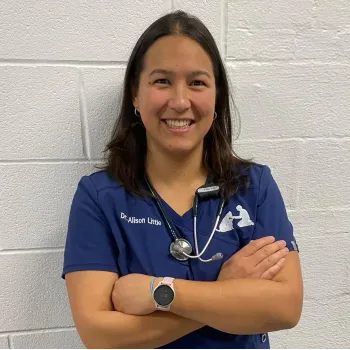
All Equine lectures are located in Pier 7/8.
Management of the Post-Operative Colic Patient
In this session, we will review common considerations and complications in post operative colic patients - either for consideration in management of your patients at your practice, or to better understand common complications and management considerations at a referral hospital so that you can help guide and inform your clients.

All Practice Management lectures are located in Pier 4/5.
Understanding What Pet Owners Want and How to Deliver
Utilizing the latest data from the OVMA’s annual Pet Owner Survey, alongside comparative information from the most recent AVMA Pet Ownership and Demographics Sourcebook, this session will examine the attitudes, perceptions, preferences, and spending patterns of today’s pet owners.
Through an exploration of the evolution of pet populations, the demographics of pet owners, how often they visit the veterinarian, this session will break down how these aspects impact the demand for veterinary services. Attendees will leave well equipped with data-driven strategies to deliver services that resonate with their clientele.
Learning Objectives:
1. Describe key changes in the population and demographic characteristics of pets and pet owners.
2. Analyze where and how pet owners are purchasing veterinary services, and other items for their pets.
3. Identify the prevailing preferences of today’s pet owners, and how your practice can strive to meet these pet owners where they are.
The Management & Finance lectures are sponsored by:

All Technician Essentials lectures are located in Pier 2/3.
Canine Heatstroke: Keeping Your Cool
Thermal injury can quickly lead to multiple organ involvement and a critical patient. This lecture will cover heat induced organ injury system by system focusing on recognition by the nursing team, immediate treatment, and ongoing nursing needs. An emphasis is placed on nursing plans and critical patient monitoring.
The Acute Care lectures are sponsored by:

The cocktail reception is located in the Metropolitan Ballroom.
The Cocktail Reception is sponsored by:
This social hour is an opportunity to catch up and reconnect with other members, and allies, of the 2SLGBTQAI+ community. We also would like to hear your thoughts about the need for a national (Canadian) 2SLGBTQAI+ veterinary organisation. Looking forward to seeing you!
The 2SLGBTQIA+ Social will be held in the Marine room.
OVMA is hosting the first ever Social Night. Details TBA but expect fun, food, music and networking with friends, co-workers & classmates.
Pre-registration for this event is required.
The OVMA Social Night is being held in the Frontenac ballroom.
The OVMA Social Night is sponsored by:
BRAVECTO QUANTUM: Breakfast & Breakthroughs in Flea & Tick Protection
Join us for a morning symposium — enjoy a complimentary breakfast while learning about BRAVECTO QUANTUM, our newest innovation providing uninterrupted flea & tick protection for dogs 6 months of age and older. Hear a technical overview, practical insights from expert panelists, and join an interactive Q&A to discover how BRAVECTO QUANTUM can simplify parasite control in your practice.
Pre-registration is required for this event.
The Sunrise Symposium is located in Harbour A/B.
The Sunrise Symposium is sponsored by:
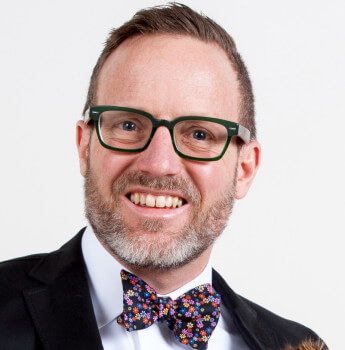


The breakfast buffet is located in the Frontenac Foyer, with seating in the Frontenac Ballroom.
Keynote Plenary Session and Breakfast
Dr. Andy Roark will be discussing the uncertainty of vet medicine (and the world), sharing practical insights, and recounting some real-world stories to help us feel better about controlling only what we can control.
The keynote is located in the Frontenac Ballroom.
The Keynote is sponsored by:

All Dermatology lectures are located in Harbour A/B.
It’s all About the Sample! Cytology & Biopsy in Veterinary Dermatology
Cutaneous cytology is a quick, inexpensive and non-invasive diagnostic test to determine whether patients have secondary infections. Knowing how to take samples and being confident interpreting these samples is critical to an animal’s disease management and health. For these reasons, cytology should be part of the minimum database for any patient being seen for a “skin problem”. Identification of a bacterial pyoderma or Malassezia dermatitis is important for treatment planning and resolution of clinical signs as well as prevention of antimicrobial resistance. There are many different ways to obtain accurate results from cytology and we will review these methods during this session. Biopsy is also an important diagnostic step in determining the cause of cutaneous disease. It requires careful site selection and biopsy technique. During this lecture we will review how to select biopsy sites, technique and some extra tips to make sure we get the best results from our skin biopsies.
The Dermatology lectures are sponsored by:
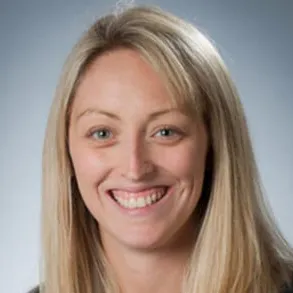
All Surgery lectures are located in Harbour C.
Avoid the “Peek and Shriek” – The Systematic Exploratory Laparotomy
This lecture emphasises when and how to perform an exploratory laparotomy, what to look out for and how to sample organs when you find abnormalities. Attendees will learn the value of targeted biopsies - including the liver, spleen, pancreas, lymph nodes and intestines.
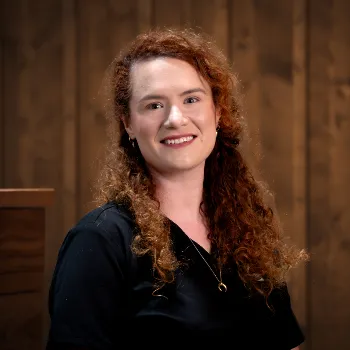
All Exotic lectures are located in Pier 2/3.
Common Diseases of Small Companion Mammals
Small companion mammals such as rabbits, guinea pigs, hedgehogs, and sugar gliders are increasingly popular. This session will discuss some of the common diseases and treatment for these pets.

All Equine lectures are located in Pier 7/8.
Overview of Orthobiologies in the Horse
This session will provide an overview of the current orthobiologics available in equine medicine. Current literature, including experimental and clinical studies, will be presented as part of the session.
The Orthobiologics & Sports Medicine lectures are sponsored by:

All Practice Management lectures are located in Pier 4/5.
Leading When You’re Not in the Building
Learn the best practices of multi-site veterinary leaders to help you stay organized, empower your team to work independently, and get you disconnected from work when you're not in the building.
The Tools for Team Leaders lectures are sponsored by:

The trade show is located in the Metropolitan Ballroom.
The tabletop displays are located in the Harbour Ballroom Foyer.
The coffee break is located at the back of the trade show in the Metropolitan Ballroom.
The coffee break is sponsored by
All Dermatology lectures are located in Harbour A/B.
When the Immune System Doesn’t Play Nice!
Immune mediated skin disease can be uncomfortable and painful for affected patients. Treatment revolves around the use of immunosuppressive medications with a plethora of potential side effects, Pemphigus foliaceus requires prompt diagnosis as well as chronic management. During this lecture we will discuss diagnosis as well as management options. We will also cover some important, but lesser known, immune mediated dermatologic diseases with some tips for diagnosis and treatment.
The Dermatology lectures are sponsored by:

All Surgery lectures are located in Harbour C.
The MEGA Intestine – Surgical Approach to the Large Intestine
This lecture will review the large intestine’s anatomy and function and then we’ll work through the key surgical principles. We will cover preoperative colon preparation, step-by-step approaches to common surgical procedures, and how to handle the conditions you’re most likely to encounter including megacolon and neoplasia.

All Exotic lectures are located in Pier 2/3.
Exotic Pet Radiology
In this session we'll cover radiographic positioning, anatomy and common abnormalities in small companion mammals such as rabbits, guinea pigs, chinchillas and ferrets.

All Equine lectures are located in Pier 7/8.
State-of-the-Art in Regenerative Medicine for Soft Tissue Injuries
This session will present currently available regenerative medicine therapies for soft tissue injuries in the horse including tendon and ligament disorders. There will be a focus on evidence-based medicine as well as case examples.
The Orthobiologics & Sports Medicine lectures are sponsored by:

All Practice Management lectures are located in Pier 4/5.
Creating the Culture You Wish Your Clinic Had
Learn how to use team values, relationships, and a focus on meaning and purpose to create the type of clinic culture you will be happy to work in.
The Tools for Team Leaders lectures are sponsored by:

The lunch buffet is located in the Frontenac Foyer, with seating in the Frontenac Ballroom.
The Lunch Break is sponsored by:
You must be present to win the draw.
The draw is located at the OVMA booth in the trade show, the Metropolitan Ballroom.
All Dermatology lectures are located in Harbour A/B.
It’s Only Skin Deep! Topical Therapy in Dermatology
Topical therapy is often underutilized in managing veterinary dermatology patients. However, topical therapy can be an essential part of a multimodal treatment plan, aiding in the repair of the skin barrier, which is so often disrupted in patients with skin disease. During this lecture we will review barrier dysfunction in allergic patients; some of the barriers to implementing topical therapy; the benefits of topical therapy for dermatology patients including infection management.
The Dermatology lectures are sponsored by:

All Surgery lectures are located in Harbour C.
Feline Urethrostomy: Fixing the Flow, One Cat at a Time
This lecture will start with the all-important question of surgical indication. It will also cover thorough preoperative evaluation of the urinary tract, walk through the surgical technique step-by-step, and finish with practical post-operative management tips. We will also cover the more common postoperative complications.

All Exotic lectures are located in Pier 2/3.
The Inappetent Rabbit
The most common reason for presentation of a pet rabbit is decreased appetite. We'll discuss a diagnostic approach and therapeutic options for these patients.

All Equine lectures are located in Pier 7/8.
Advances in the Management of Joint Disease
Managing joint disease in the equine athlete can be challenging and choosing the best option for the horse can be overwhelming. This session will discuss the numerous options available to treat joint injuries, including osteoarthritis, with a focus on intra-articular injections.
The Orthobiologics & Sports Medicine lectures are sponsored by:

All Practice Management lectures are located in Pier 4/5.
How to Train Your Doctors
This session will introduce the GROW model of coaching, and the SBI feedback model. We will also talk about how to deploy these communication tools when working with veterinarians (or anyone up the organizational power gradient).
The Tools for Team Leaders lectures are sponsored by:

All Dermatology lectures are located in Harbour A/B.
Pododermatitis
Pododermatitis, also known as pedal folliculitis and furunculosis, is a multifactorial inflammatory disease process affecting the feet. More commonly pododermatitis is noted in canines as opposed to felines. It is not a diagnosis but more a clinical presentation indicative of many different underlying diseases. Clinical signs related to the paws will appear the same with any of the underlying conditions. Tissue affected may include interdigital webbing, nail folds, nails and footpads. Lesions can wax and wane and also spontaneously resolve in certain cases. Due to the complexity of the disease and the changing nature of lesions, pododermatitis can be frustrating to diagnose and treat. Many factors should be evaluated including age, breed, coat length, conformation, presence of other clinical signs and the number of paws affected. This information will help guide the diagnostic approach to the case as well as treatment plan.
The Dermatology lectures are sponsored by:

All Surgery lectures are located in Harbour C.
Lumpectomy 101: Removing Tumours in Cats and Dogs with Confidence!
This lecture will cover through preoperative evaluation, with a focus on likely tumour type, lymph node involvement, and metastatic risk. You’ll learn the different types of surgical excision, how to evaluate margins and cover tips for helping your pathologist get the most from your samples.

All Exotic lectures are located in Pier 2/3.
Analgesia in Avian Exotic Animal Practice
Exotic pets hurt too. This session will cover some of the evidence-based options that are available to provide analgesia to non-traditional pets including small mammals, reptiles, and birds.

All Equine lectures are located in Pier 7/8.
The Clinical Application of Advanced Imaging for Sport Horses
Diagnostic imaging is central to the role of the equine sports medicine clinician. The past two decades have brought forward major advances in equine diagnostic imaging including computed tomography (CT), magnetic resonance imaging (MRI), and most recently positron emission tomography (PET). This session will focus on how these imaging modalities can be used to provide earlier and more accurate diagnoses, aid in surgical planning, and generally improve clinical outcomes in sport horses.
The Orthobiologics & Sports Medicine lectures are sponsored by:

All Practice Management lectures are located in Pier 4/5.
Triaging Your Time
Are you spending all your time fighting fires? We need to fix that. In this session, we will learn how to set priorities, control doctor and management expectations, and delegate effectively.
The Tools for Team Leaders lectures are sponsored by:

The coffee break is located at the back of the trade show in the Metropolitan Ballroom.
All Dermatology lectures are located in Harbour A/B.
Dermatology Communication Tips & Tricks
Pets with dermatologic problems provide a substantial caseload in primary care veterinary practice. It can be difficult to identify the underlying cause of a pet’s dermatologic condition, so it can be challenging to efficiently treat these patients. These cases can be further complicated by clients’ financial, emotional, physical, or time constraints. If clients do not understand why their pet is being treated and what they are being treated for, this serves to decrease compliance. The chronicity as well as the waxing and waning nature of some dermatologic diseases can lead to increased frustration in your clients. Communication in veterinary dermatology is key to prevent this and set realistic expectations. During this lecture we will discuss some tips for effective communication with clients about their pet's disease, treatment and outcomes.
The Dermatology lectures are sponsored by:

All Surgery lectures are located in Harbour C.
Wound Management: A Case-Based Lecture
From the first flush to final closure - we’ll cover how patient factors influence your plan, antibiotic choices and practical tips for effective lavage and debridement of wounds. You’ll learn when it’s best to delay closure, how to select a primary dressing and we’ll also touch on skin reconstruction techniques.

All Exotic lectures are located in Pier 2/3.
Avian Exotic Dermatology
Bugs, crusts, and lumps. This session will cover diagnosis and treatment of some common skin conditions of small mammals, birds and reptiles.

All Equine lectures are located in Pier 7/8.
Management of Cervical Spine Disease in the Equine Athlete
This session will discuss non-infectious and non-degenerative conditions of the equine cervical spine. We will focus on how disorders present, how disorders can be diagnosed and current treatment options.
The Orthobiologics & Sports Medicine lectures are sponsored by:

All Practice Management lectures are located in Pier 4/5.
Leading, Communicating, Thriving: An Open Q&A with Dr. Andy Roark
Join Dr. Andy Roark for an open Q&A on how to lead, communicate and thrive in your practice!
The Tools for Team Leaders lectures are sponsored by:

